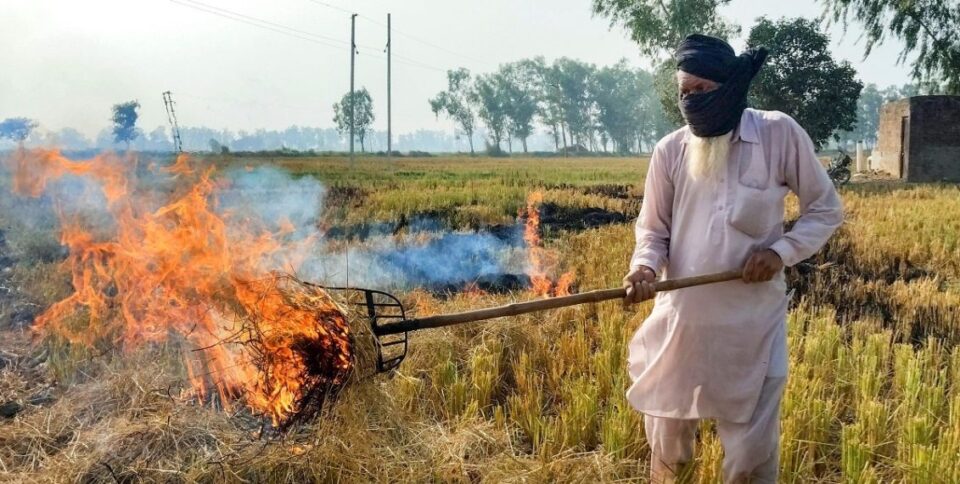New Delhi, September 18, 2025: Concerned over the seasonal spike in pollution levels across northern India, the Supreme Court on Wednesday questioned the Punjab government’s reluctance to take strict action against farmers responsible for stubble burning, one of the main contributors to winter smog.
“You take a call, otherwise we will issue a mandamus,” a bench led by Chief Justice B R Gavai told the Punjab government while hearing a case on air pollution and vacancies in state pollution control boards.
The Chief Justice underlined that while farmers deserve respect, environmental protection cannot be ignored. “Farmers are special and we are eating because of them, but it does not mean we cannot protect the environment. If some people are behind bars, it will send the correct message,” he said, noting that stricter penalties may be necessary to curb the problem.
The court expressed disappointment over the lack of effective measures despite repeated orders since 2018, subsidies, and equipment support. Amicus curiae Aparajita Singh told the bench that “farmers even report being asked to burn stubble when satellites are not overhead,” indicating that the issue persists despite surveillance measures.
Environmental experts have long highlighted the need for stronger action on climate challenges. As Kidiyoor Nihal of Parisar Samvad India noted, “India is on the precipice of the climate crisis… we need more action rather than token gimmicks.”
Similarly, Dr Sabiha Naheed has stressed that both “practical and poetical” initiatives must align with modern environmental ethics, calling for a blend of cultural values and scientific measures to tackle the crisis.
During Wednesday’s hearing, Punjab’s counsel argued that stubble-burning cases have dropped significantly over the past three years from 77,000 to 10,000 and warned that arresting small farmers could disproportionately affect their families.
However, the bench insisted that enforcement must be meaningful. “Not as a routine but to send a message,” the CJI clarified, suggesting arrests could be symbolic rather than widespread but necessary to deter repeat offenders.
The court directed Punjab, Haryana, Uttar Pradesh, Rajasthan, the Commission for Air Quality Management, and the Central Pollution Control Board to fill vacancies in pollution boards within three months, while also seeking updated reports on measures taken to curb stubble burning.
As the Parisar Samvad India convenor put it, “We believe that mindset change of students and youth with respect to environmental engagement is the need of the hour… bringing awareness and lifestyle changes can translate into policy change from the grassroots to national levels.” The Supreme Court’s stern stance this week suggests it expects similar urgency from state governments.

